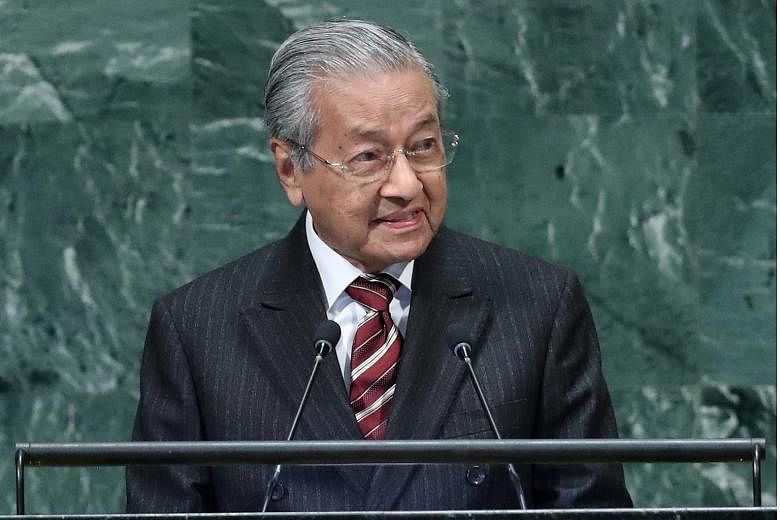KUALA LUMPUR (BLOOMBERG) - Malaysia will devise new taxes soon to shore up a state budget that has been constrained by debt and changes to the consumption levy, Prime Minister Mahathir Mohamad said.
The government may also have to sell assets to raise money to pay "huge debt," he said at a forum in Kuala Lumpur, adding that he believes foreign investment will still come and contribute to the nation's economic growth.
The new measures will be announced as part of a budget speech planned for Nov 2, Finance Minister Lim Guan Eng said at the same forum.
The Southeast Asian nation is grappling with debt and liabilities exceeding 1 trillion ringgit (S$333 billion), worsened by state guarantees on notes issued by troubled fund 1Malaysia Development Berhad (1MDB), and the replacement of a sweeping consumer tax with a more selective levy.
Mahathir has reviewed billion-dollar transportation projects, and cancelled or deferred many of them for being too costly. On Sunday, the government said it pared the cost of an almost US$14-billion mass-rapid transit project.
In the short term, it would be "foolish" for the current government, which took power in May, to abide by "unrealistic" fiscal targets set by the previous administration, Lim said on Tuesday (Oct 9).
Budget consolidation will not be easy as Malaysia will need three years to resolve the issues resulting from 1MDB and billions of ringgit in possibly missing tax refunds, he said.
The country is turning to additional bond issuance and sales of assets, including stakes in "non-critical, non-strategic companies" to raise funds to strive toward its fiscal deficit target of 2.8 per cent of gross domestic product this year, Lim said in August.
One of those companies could be state oil firm Petroliam Nasional Bhd, though Mahathir has not come to a decision on whether to offer it through an initial public offering.
The government plans to reduce its direct equity holdings to reduce a "crowding-out effect" caused by state investments, Lim said on Tuesday.

